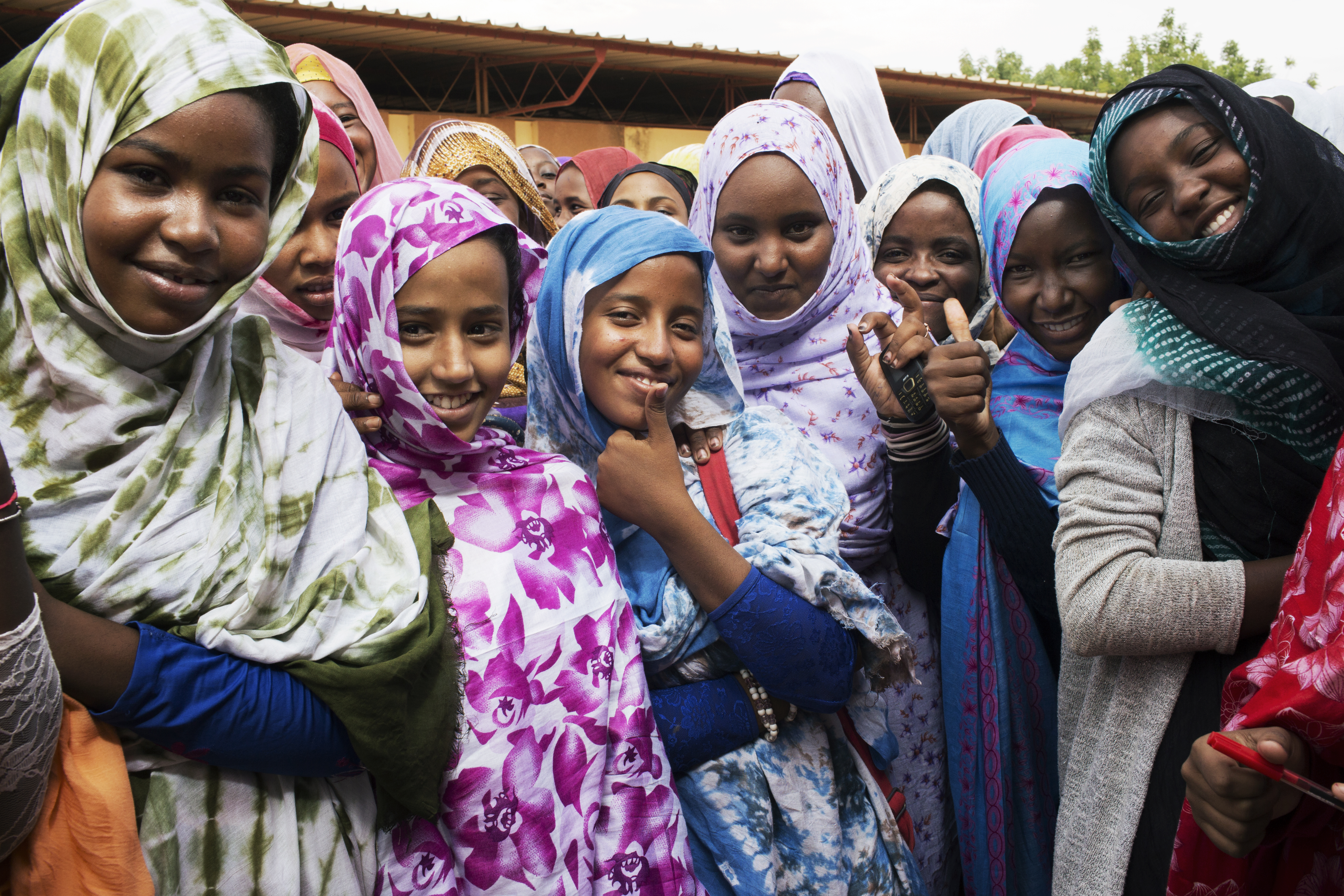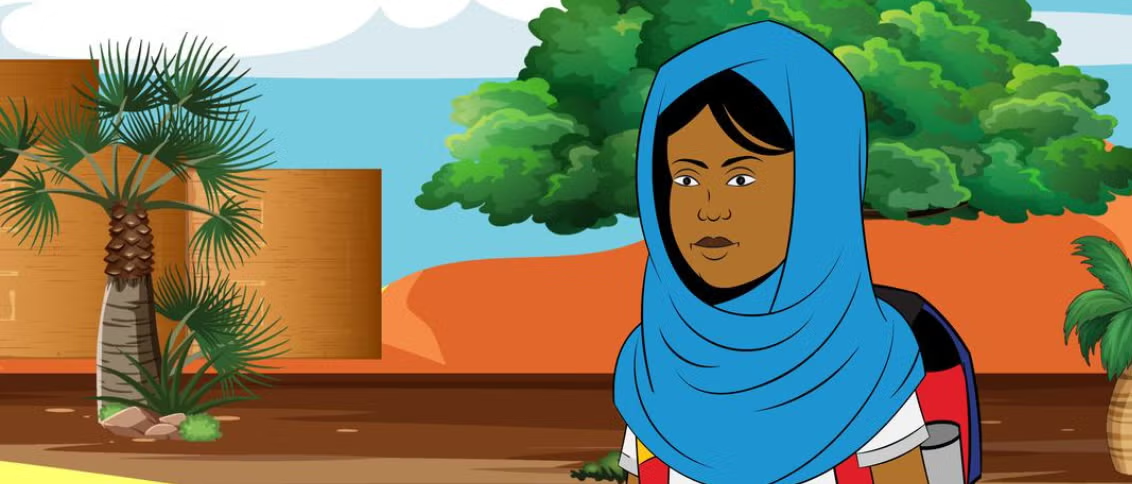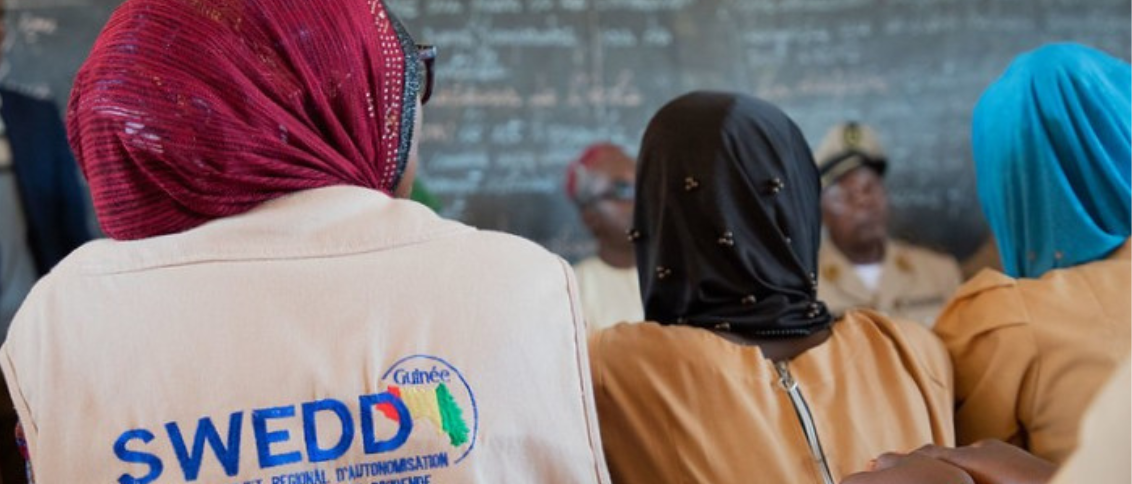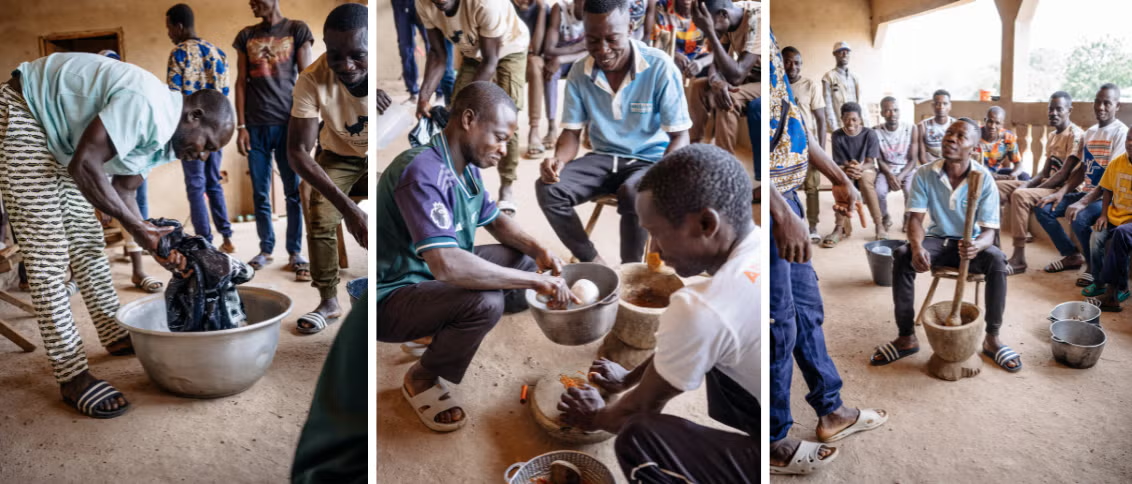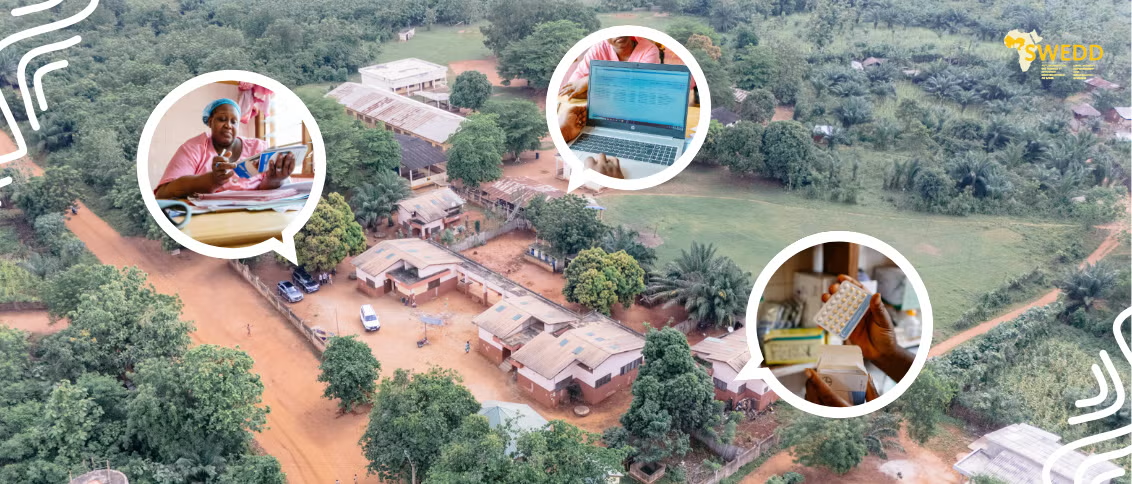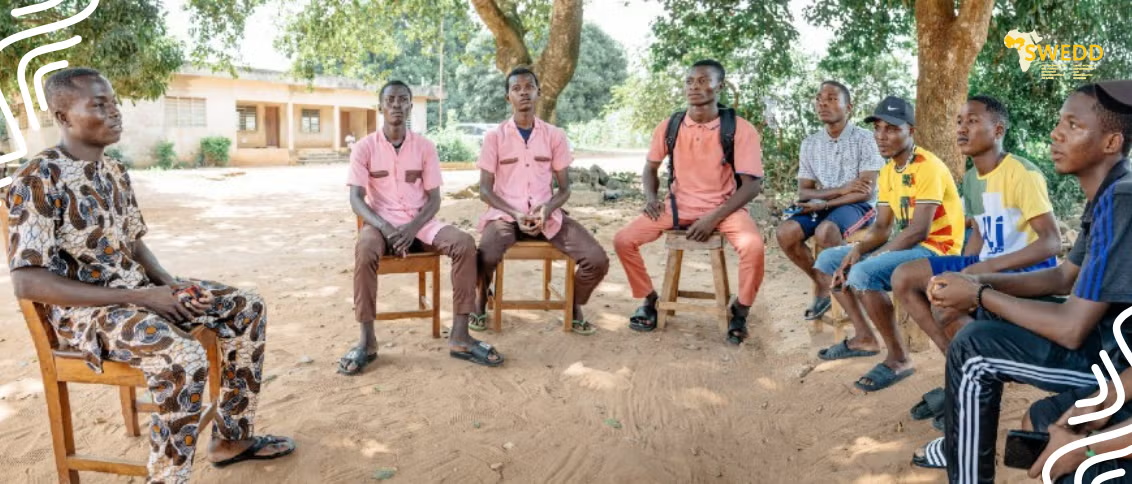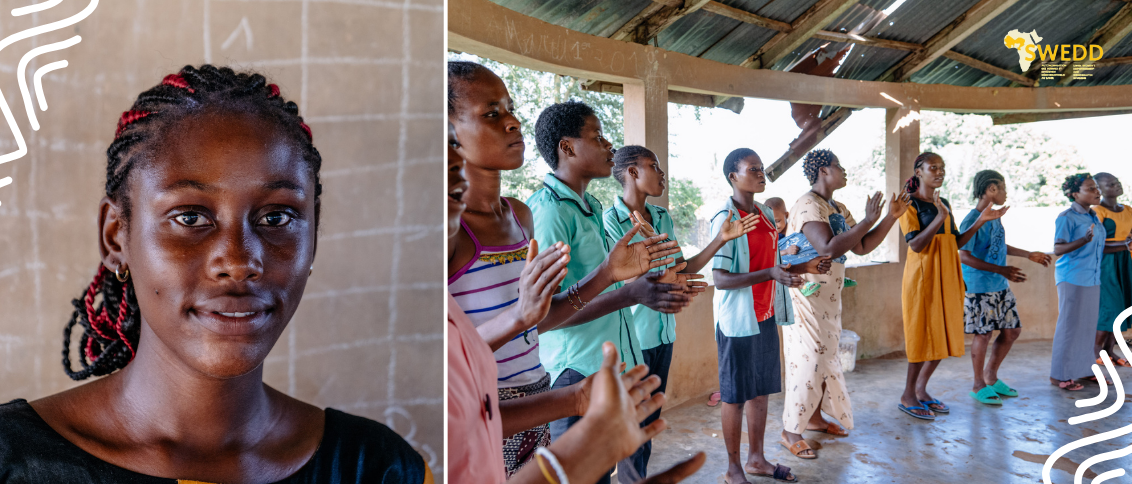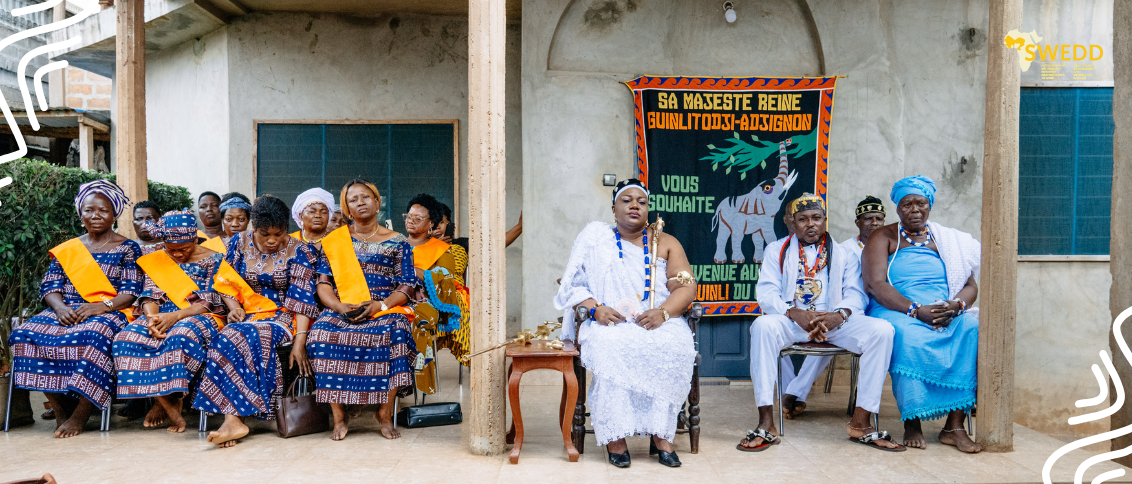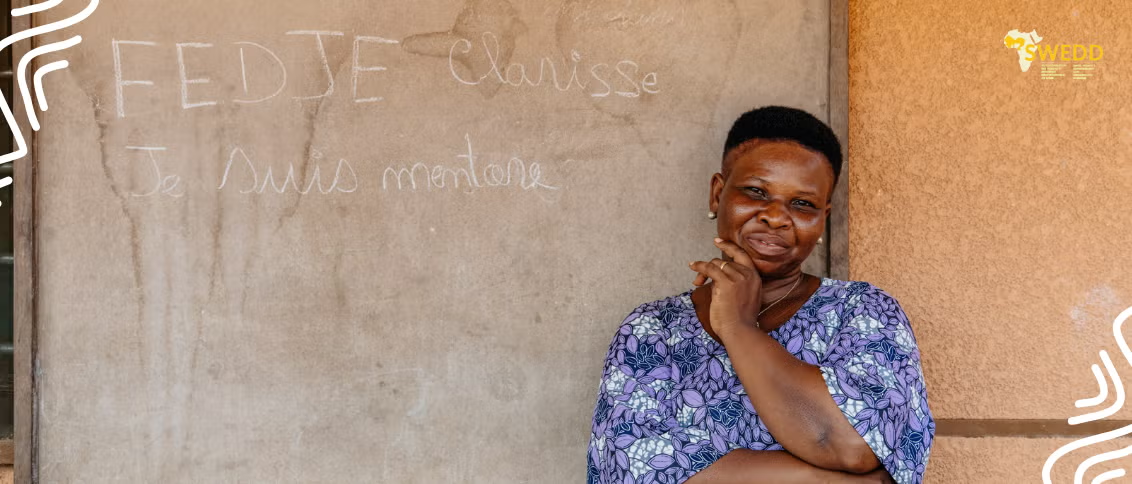Interventions
Themes
The "4 Es" strategy to help empower women
More than 80% of adolescent girls are at risk of early pregnancy, child marriage and dropping out of school in West and Central Africa. More than 28 million have already left school, living in rural or border communities with limited access to public services. Girls and young women living in poor rural communities are the most likely to face the greatest barriers to change.
Gender-based violence (GBV) is pervasive and undermines girls' education, their health and their opportunities in the labour market. On average, 42% of women in West and Central Africa report having experienced physical, sexual or emotional violence from an intimate partner (a form of GBV). Female genital mutilation is also widely practised in the region.
Women exposed to GBV are more likely to suffer from depression, abuse alcohol, have low-birth-weight babies and contract HIV. If GBV is not addressed in schools and communities, it will continue to disproportionately affect the life outcomes and well-being of women and girls, at great cost to their communities and countries.
The SWEDD initiative deploys a multi-sectoral "4E" approach, which recognises the multi-dimensional nature of the challenges facing women and girls and the fact that they require sustained and coordinated action across sectors and boundaries:
Gender-based violence (GBV) is pervasive and undermines girls' education, their health and their opportunities in the labour market. On average, 42% of women in West and Central Africa report having experienced physical, sexual or emotional violence from an intimate partner (a form of GBV). Female genital mutilation is also widely practised in the region.
Women exposed to GBV are more likely to suffer from depression, abuse alcohol, have low-birth-weight babies and contract HIV. If GBV is not addressed in schools and communities, it will continue to disproportionately affect the life outcomes and well-being of women and girls, at great cost to their communities and countries.
The SWEDD initiative deploys a multi-sectoral "4E" approach, which recognises the multi-dimensional nature of the challenges facing women and girls and the fact that they require sustained and coordinated action across sectors and boundaries:
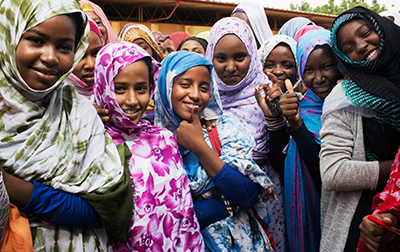
Education
Keeping girls in school, at least until the end of secondary school, and improving adult learning

Extending access to RMNCAH health services
Strengthening health services with a focus on adolescence to delay the first birth until adulthood, and then adopt healthy spacing.
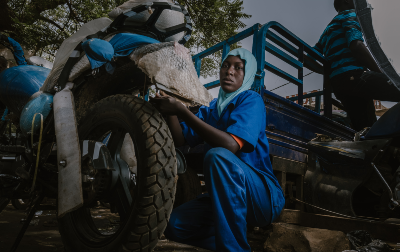
Economic emancipation
Employing and training women to enhance productivity and improve access to higher-income jobs and financial inclusion.
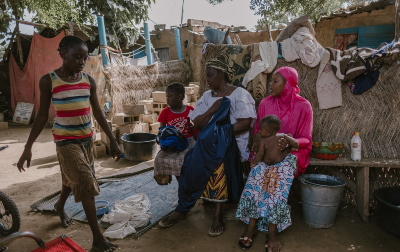
Favourable environment
Creating an enabling environment for women's empowerment, including through the law, by empowering women and protecting them from violence.

